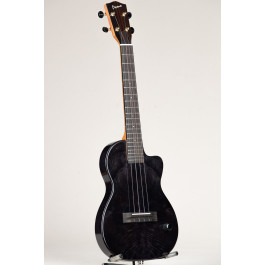Hi,
I’m tempted from time to time to get an electric only solid body Uke, and even a nylon string guitar, for that matter.
My reasoning is for quiet practice and noise free recording.
My times to practice at full volume and record in a quiet environment are pretty limited. I think my technique suffers from practicing quietly with acoustic instruments, and I often put off recording because of the lack of a quiet place to record that I can count on.
I might have the time to practice or record late at night or early in the morning, but then others are sleeping.
I know the sound from a piezo might not be perfect, but it might mean recording more often.
And, on the occasions when I play out it might be easier to get plugged into the sound system.
I would favor the Yamaha nylon silent guitar, but not sure about the Uke option.
What does a higher price get you in a solid body Uke over a more budget version? Sound quality? Playability? Other things?
I would appreciate hearing about your experiences in practicing and recording with such instruments. I do have an interface already.
Or, am I just guilty of CUAJS?
( convoluted ukulele acquisition justification syndrome )

I’m tempted from time to time to get an electric only solid body Uke, and even a nylon string guitar, for that matter.
My reasoning is for quiet practice and noise free recording.
My times to practice at full volume and record in a quiet environment are pretty limited. I think my technique suffers from practicing quietly with acoustic instruments, and I often put off recording because of the lack of a quiet place to record that I can count on.
I might have the time to practice or record late at night or early in the morning, but then others are sleeping.
I know the sound from a piezo might not be perfect, but it might mean recording more often.
And, on the occasions when I play out it might be easier to get plugged into the sound system.
I would favor the Yamaha nylon silent guitar, but not sure about the Uke option.
What does a higher price get you in a solid body Uke over a more budget version? Sound quality? Playability? Other things?
I would appreciate hearing about your experiences in practicing and recording with such instruments. I do have an interface already.
Or, am I just guilty of CUAJS?
( convoluted ukulele acquisition justification syndrome )



